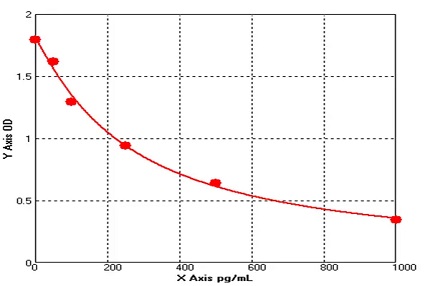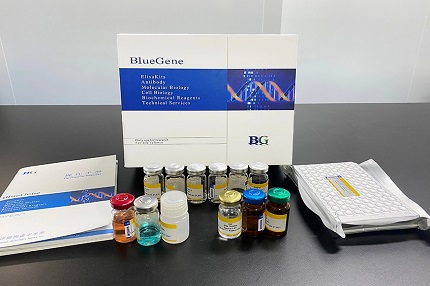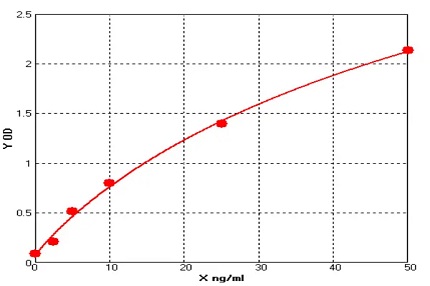Search ELISA Kits
Sheep ELISA Kits Types
-
Sheep Epinephrine/Adrenaline ELISA kit (E14A0007)MANUAL
Cat. No.: E14A0007
Detection Range: 100-2500 pg/mL
Reactivity: Sheep
Sensitivity: 1.0 pg/mL

-
Sheep Anti Interleukin 10 ELISA kit (E14A0081)MANUAL
Cat. No.: E14A0081
Detection Range: 25-500ng/ml
Reactivity: Sheep
Sensitivity: 1.0ng/ml

-
Sheep Cluster of Differentiation 4 ELISA kit (E14C0004)MANUAL
Cat. No.: E14C0004
Detection Range: 25-500ng/ml
Reactivity: Sheep
Sensitivity: 1.0ng/ml

-
Sheep Superoxide Dismutase ELISA kit (E14S0012)MANUAL
Cat. No.: E14S0012
Detection Range: 0.5-10ng/ml
Reactivity: Sheep
Sensitivity: 0.1ng/mL
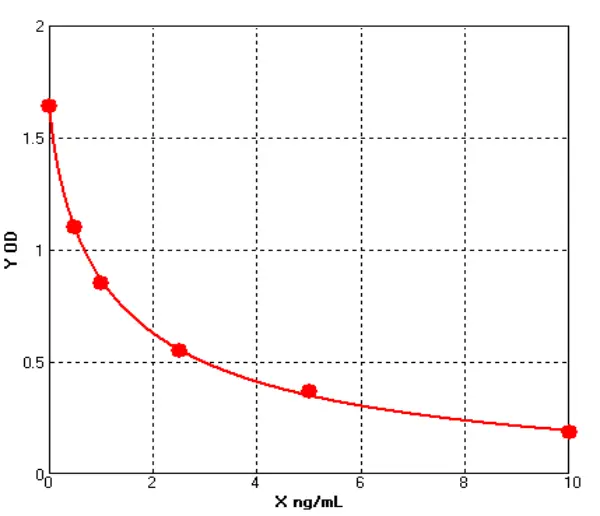
-
Sheep Chemokine C C motif ligand 8 ELISA kit (E14C0619)MANUAL
Cat. No.: E14C0619
Detection Range: 0.5-10ng/ml
Reactivity: Sheep
Sensitivity: 0.1ng/mL

-
Sheep Chemokine C C motif ligand 2 ELISA kit (E14C0231)MANUAL
Cat. No.: E14C0231
Detection Range: 0.5-10ng/ml
Reactivity: Sheep
Sensitivity: 0.1ng/mL

-
Sheep Calcium Binding Protein D9K ELISA kit (E14C2509)MANUAL
Cat. No.: E14C2509
Detection Range: 0.5-10ng/ml
Reactivity: Sheep
Sensitivity: 0.1ng/mL

-
Sheep Estrogens ELISA kit (E14E0314)MANUAL
Cat. No.: E14E0314
Detection Range: 0.5-10ng/ml
Reactivity: Sheep
Sensitivity: 0.1ng/mL

-
Sheep Fibroblast growth factor 23 ELISA kit (E14F0009)MANUAL
Cat. No.: E14F0009
Detection Range: 0.5-10ng/ml
Reactivity: Sheep
Sensitivity: 0.1ng/mL

-
Sheep Insulin ELISA kit (E14I0004)MANUAL
Cat. No.: E14I0004
Detection Range: 0.5-10ng/ml
Reactivity: Sheep
Sensitivity: 0.1ng/mL

-
Sheep Interleukin 6 receptor ELISA kit (E14I0206)MANUAL
Cat. No.: E14I0206
Detection Range: 0.5-10ng/ml
Reactivity: Sheep
Sensitivity: 0.1ng/mL

-
Sheep Mannma binding protein/mannan binding lectin ELISA kit (E14M0240)MANUAL
Cat. No.: E14M0240
Detection Range: 0.5-10ng/ml
Reactivity: Sheep
Sensitivity: 0.1ng/mL

-
Sheep Myosin Heavy Chain ELISA kit (E14M0035)MANUAL
Cat. No.: E14M0035
Detection Range: 0.5-10ng/ml
Reactivity: Sheep
Sensitivity: 0.1ng/mL

-
Sheep Non ester Fatty Acid ELISA kit (E14N0063)MANUAL
Cat. No.: E14N0063
Detection Range: 0.5-10µmol/L
Reactivity: Sheep
Sensitivity: 0.1µmol/L
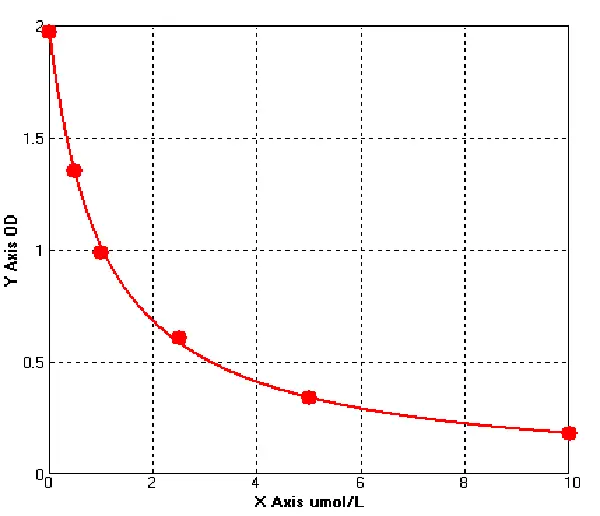
-
Sheep D Dimer ELISA kit (E14D0224)MANUAL
Cat. No.: E14D0224
Detection Range: 0.5-10ug/ml
Reactivity: Sheep
Sensitivity: 0.1ug/mL

-
Sheep Tryptophan 5 hydroxylase 1 ELISA kit (E14T0726)MANUAL
Cat. No.: E14T0726
Detection Range: 1.0-25ng/ml
Reactivity: Sheep
Sensitivity: 0.1ng/mL
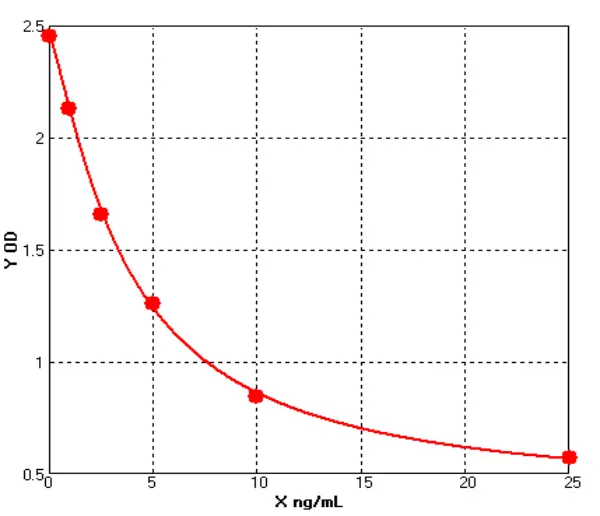
-
Sheep Progesterone ELISA kit (E14P0200)MANUAL
Cat. No.: E14P0200
Detection Range: 1.0-25ng/ml
Reactivity: Sheep
Sensitivity: 0.1ng/mL

-
Sheep Glucagon ELISA kit (E14G0101)MANUAL
Cat. No.: E14G0101
Detection Range: 100-2500pg/ml
Reactivity: Sheep
Sensitivity: 1.0 pg/mL
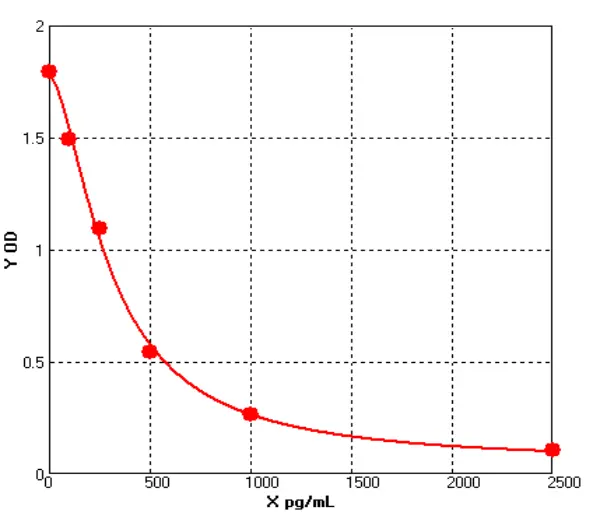
-
Sheep Cluster of Differentiation 8 ELISA kit (E14C0007)MANUAL
Cat. No.: E14C0007
Detection Range: 10-250ng/ml
Reactivity: Sheep
Sensitivity: 1.0ng/mL
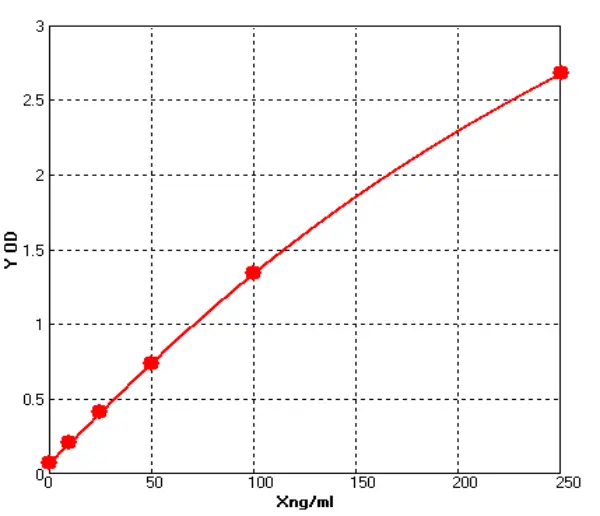
-
Sheep Prolactin ELISA kit (E14P0039)MANUAL
Cat. No.: E14P0039
Detection Range: 10-250ng/ml
Reactivity: Sheep
Sensitivity: 1.0ng/mL

-
Sheep Corticosterone ELISA kit (E14C0006)MANUAL
Cat. No.: E14C0006
Detection Range: 10-250ng/ml
Reactivity: Sheep
Sensitivity: 1.0ng/mL
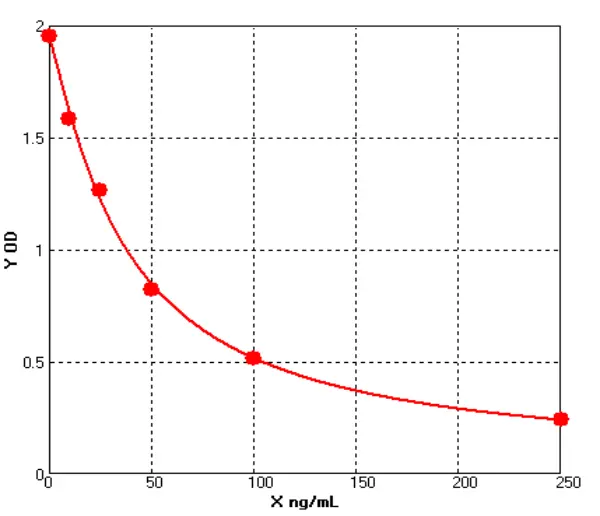
-
Sheep Immunoglobulin A ELISA kit (E14I0021)MANUAL
Cat. No.: E14I0021
Detection Range: 2.5-50mg/ml
Reactivity: Sheep
Sensitivity: 0.1mg/mL

-
Sheep Immunoglobulin G ELISA kit (E14I0058)MANUAL
Cat. No.: E14I0058
Detection Range: 2.5-50mg/ml
Reactivity: Sheep
Sensitivity: 0.1mg/mL
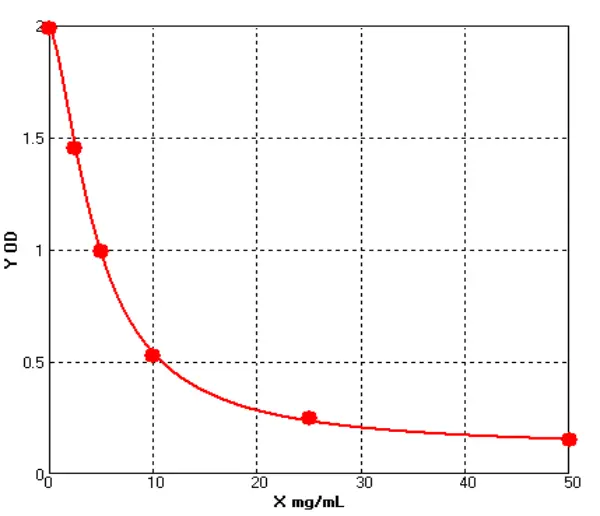
-
Sheep Glutathione Reductase ELISA kit (E14G0238)MANUAL
Cat. No.: E14G0238
Detection Range: 2.5-50ng/ml
Reactivity: Sheep
Sensitivity: 0.1ng/mL
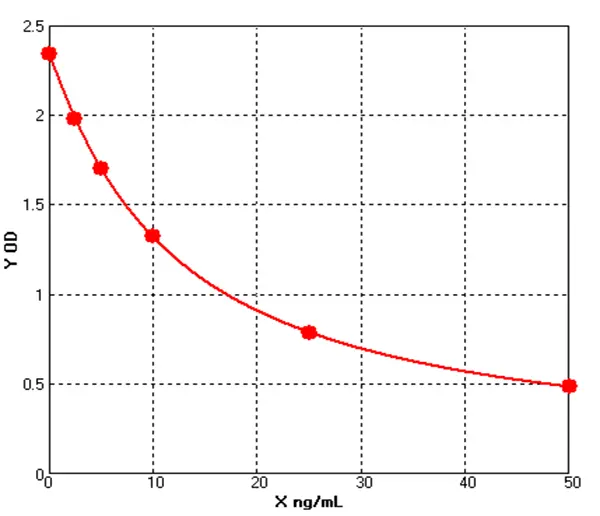
-
Sheep Inositol Triphosphate ELISA kit (E14I0011)MANUAL
Cat. No.: E14I0011
Detection Range: 2.5-50ng/ml
Reactivity: Sheep
Sensitivity: 0.1ng/mL

-
Sheep Malondialdehyde ELISA kit (E14M0023)MANUAL
Cat. No.: E14M0023
Detection Range: 2.5-50ng/ml
Reactivity: Sheep
Sensitivity: 0.1ng/mL

-
Sheep Growth Hormone ELISA kit (E14G0165)MANUAL
Cat. No.: E14G0165
Detection Range: 2.5-50ng/ml
Reactivity: Sheep
Sensitivity: 0.1ng/mL
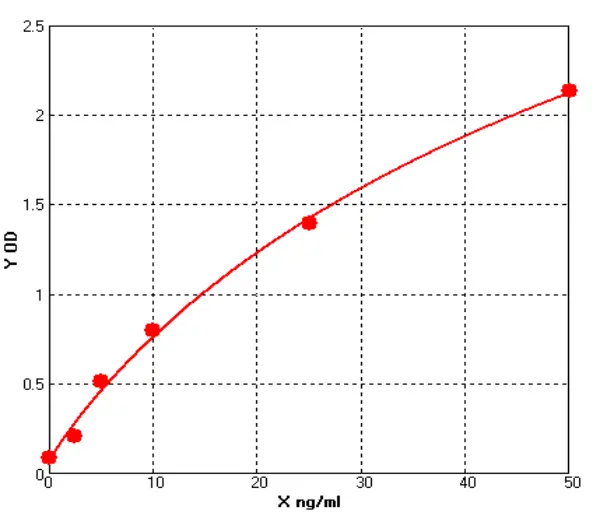
-
Sheep E2 estradiol ELISA kit (E14E0023)MANUAL
Cat. No.: E14E0023
Detection Range: 250-5000pg/ml
Reactivity: Sheep
Sensitivity: 1.0pg/mL
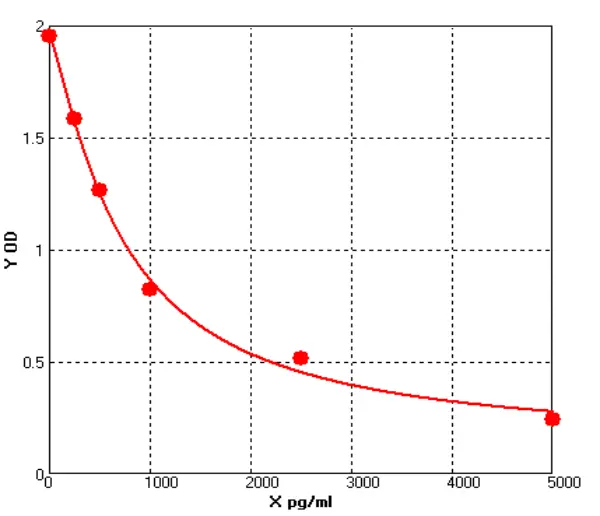
-
Sheep Growth hormone releasing hormone ELISA kit (E14G0011)MANUAL
Cat. No.: E14G0011
Detection Range: 250-5000pg/ml
Reactivity: Sheep
Sensitivity: 1.0pg/mL

-
Sheep Insulin like Growth Factor 1 ELISA kit (E14I0009)MANUAL
Cat. No.: E14I0009
Detection Range: 25-500ng/ml
Reactivity: Sheep
Sensitivity: 1.0ng/mL
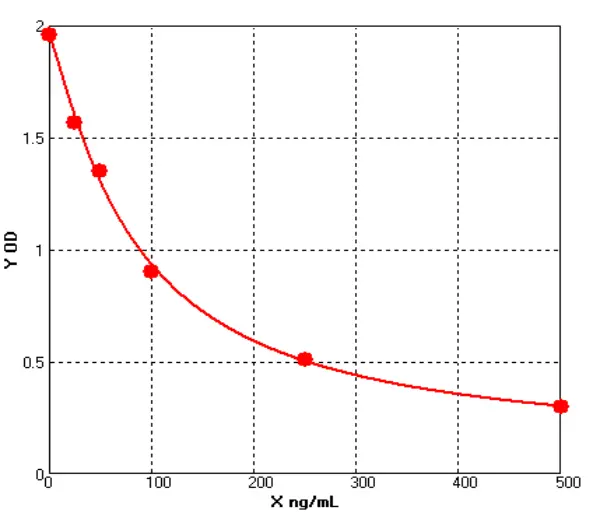
-
Sheep Triiodothyronine ELISA kit (E14T0039)MANUAL
Cat. No.: E14T0039
Detection Range: 5.0-100ng/ml
Reactivity: Sheep
Sensitivity: 1.0ng/mL
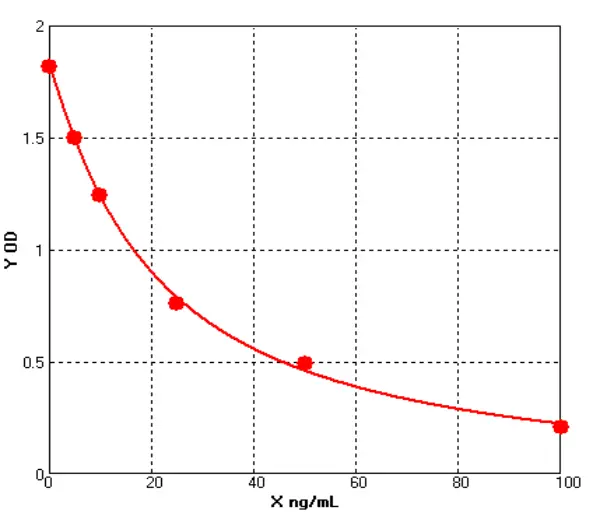
-
Sheep Very Low Density Lipoproteins ELISA kit (E14V0006)MANUAL
Cat. No.: E14V0006
Detection Range: 5.0-100ng/ml
Reactivity: Sheep
Sensitivity: 1.0ng/mL
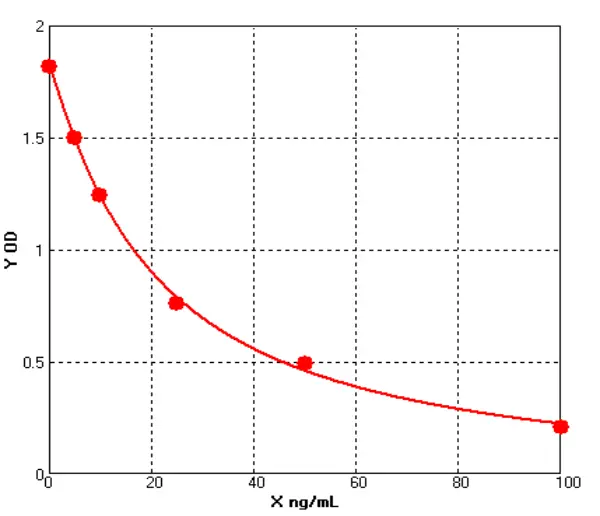
-
Sheep Follicle Stimulating Hormone ELISA kit (E14F0001)MANUAL
Cat. No.: E14F0001
Detection Range: 5.0-100ng/ml
Reactivity: Sheep
Sensitivity: 1.0ng/mL

-
Sheep Gonadotropin Releasing Hormone ELISA kit (E14G0213)MANUAL
Cat. No.: E14G0213
Detection Range: 5.0-100ng/ml
Reactivity: Sheep
Sensitivity: 1.0ng/mL

-
Sheep Heat Shock Protein 70 ELISA kit (E14H0022)MANUAL
Cat. No.: E14H0022
Detection Range: 5.0-100ng/ml
Reactivity: Sheep
Sensitivity: 1.0ng/mL

-
Sheep Luteinizing Hormone ELISA kit (E14L0021)MANUAL
Cat. No.: E14L0021
Detection Range: 5.0-100ng/ml
Reactivity: Sheep
Sensitivity: 1.0ng/mL
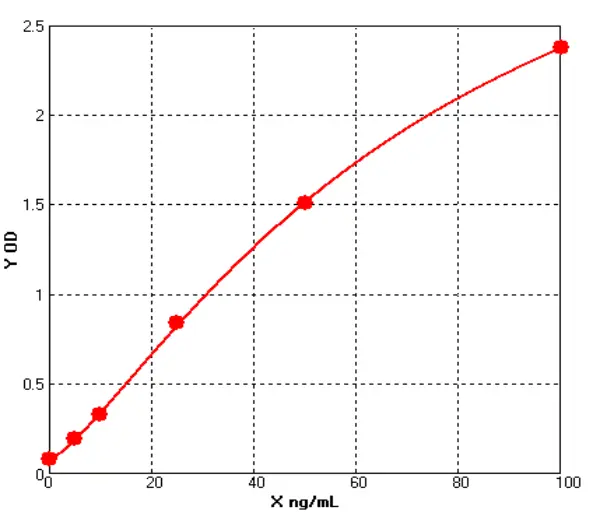
-
Sheep Immunoglobulin M ELISA kit (E14I0038)MANUAL
Cat. No.: E14I0038
Detection Range: 50-1000mg/L
Reactivity: Sheep
Sensitivity: 1.0mg/L
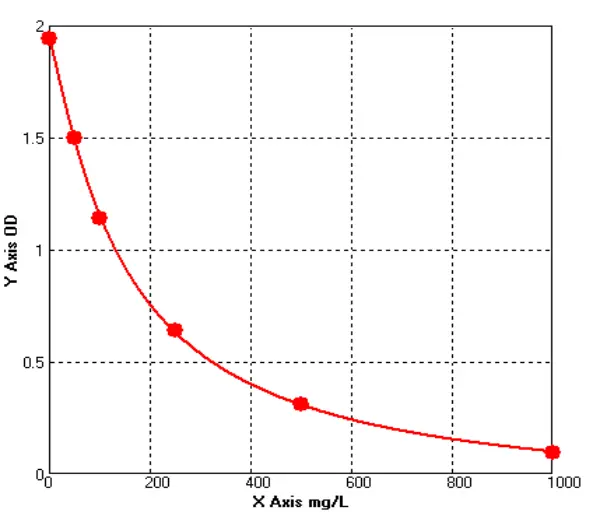
-
Sheep Vitamin D3 receptor ELISA kit (E14V0069)MANUAL
Cat. No.: E14V0069
Detection Range: 50-1000ng/ml
Reactivity: Sheep
Sensitivity: 1.0ng/mL
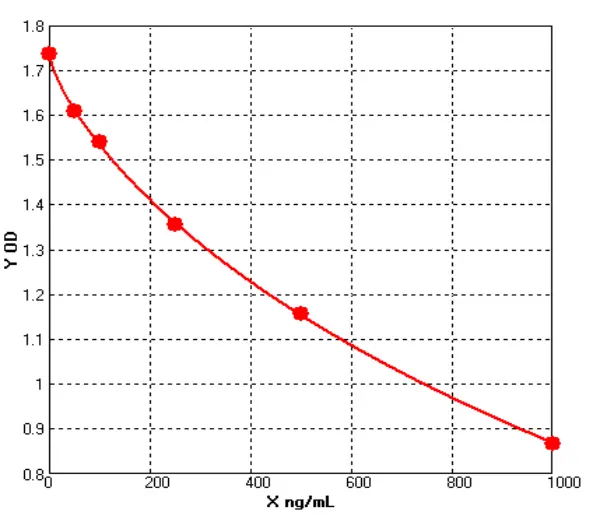
-
Sheep Hyaluronic Acid ELISA kit (E14H0029)MANUAL
Cat. No.: E14H0029
Detection Range: 50-1000ng/ml
Reactivity: Sheep
Sensitivity: 1.0ng/mL

-
Sheep Immunoglobulin E ELISA kit (E14I0037)MANUAL
Cat. No.: E14I0037
Detection Range: 50-1000ng/ml
Reactivity: Sheep
Sensitivity: 1.0ng/mL

-
Sheep Tumor Necrosis Factor Alpha ELISA kit (E14T0008)MANUAL
Cat. No.: E14T0008
Detection Range: 50-1000pg/ml
Reactivity: Sheep
Sensitivity: 1.0pg/mL

-
Sheep Inhibin β A ELISA kit (E14I0107)MANUAL
Cat. No.: E14I0107
Detection Range: 50-1000pg/ml
Reactivity: Sheep
Sensitivity: 1.0pg/mL
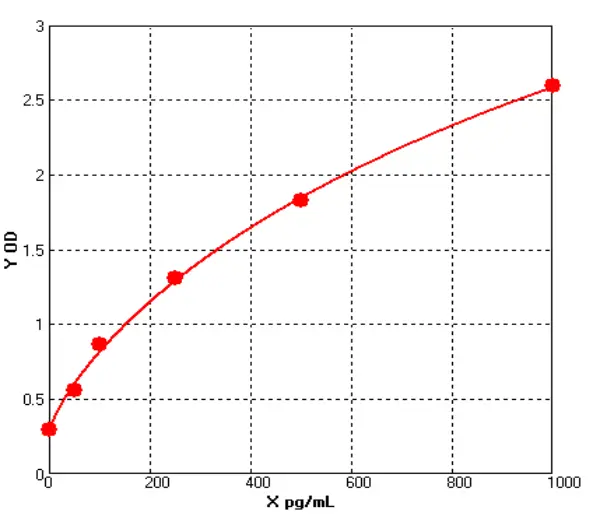
-
Sheep Interferon alpha ELISA kit (E14I0343)MANUAL
Cat. No.: E14I0343
Detection Range: 50-1000pg/ml
Reactivity: Sheep
Sensitivity: 1.0pg/mL

-
Sheep Interferon β ELISA kit (E14I0344)MANUAL
Cat. No.: E14I0344
Detection Range: 50-1000pg/ml
Reactivity: Sheep
Sensitivity: 1.0pg/mL

-
Sheep Interferon γ ELISA kit (E14T0008)MANUAL
Cat. No.: E14T0008
Detection Range: 50-1000pg/ml
Reactivity: Sheep
Sensitivity: 1.0pg/mL

-
Sheep Interleukin 10 ELISA kit (E14I0023)MANUAL
Cat. No.: E14I0023
Detection Range: 50-1000pg/ml
Reactivity: Sheep
Sensitivity: 1.0pg/mL

-
Sheep Interleukin 12 ELISA kit (E14I0033)MANUAL
Cat. No.: E14I0033
Detection Range: 50-1000pg/ml
Reactivity: Sheep
Sensitivity: 1.0pg/mL

-
Sheep Interleukin 1β ELISA kit (E14I0010)MANUAL
Cat. No.: E14I0010
Detection Range: 50-1000pg/ml
Reactivity: Sheep
Sensitivity: 1.0pg/mL

-
Sheep Interleukin 2 ELISA kit (E14I0308)MANUAL
Cat. No.: E14I0308
Detection Range: 50-1000pg/ml
Reactivity: Sheep
Sensitivity: 1.0pg/mL

-
Sheep Interleukin 4 ELISA kit (E14I0007)MANUAL
Cat. No.: E14I0007
Detection Range: 50-1000pg/ml
Reactivity: Sheep
Sensitivity: 1.0pg/mL

-
Sheep Interleukin 5 ELISA kit (E14I0024)MANUAL
Cat. No.: E14I0024
Detection Range: 50-1000pg/ml
Reactivity: Sheep
Sensitivity: 1.0pg/mL

-
Sheep Interleukin 6 ELISA kit (E14I0006)MANUAL
Cat. No.: E14I0006
Detection Range: 50-1000pg/ml
Reactivity: Sheep
Sensitivity: 1.0pg/mL

-
Sheep Interleukin 8 ELISA kit (E14I0056)MANUAL
Cat. No.: E14I0056
Detection Range: 50-1000pg/ml
Reactivity: Sheep
Sensitivity: 1.0pg/mL

Difference Between Sheep and Goat Elisa Kit?
There are 27 pairs of chromosomes in sheep and 30 pairs in goats. There are many studies on satellite DNA polymorphism, poxvirus immunity, stem cell culture, gene phylogeny, gene expression differences in different tissues, and blood physiology and biochemistry between sheep and goats, and there are some differences. In addition, the study on milk composition, fatty acid, and amino acid of their milk samples showed that the contents of total solids, nonfat, fat, protein, casein, galactose, acidity, and lactic acid in goat milk were significantly higher than those in goat milk.
What Are the Precautions when Handling Sheep Tissue Samples?
The common samples include serum, plasma, tissue lysate, alveolar lavage fluid, urine, etc. The samples should be processed according to the instructions. When taking tissue samples, it is necessary to rinse the blood components in the tissue to remove the interference of peroxidase, add tissue lysate for grinding, centrifuge to remove the tissue block, collect the supernatant, add protease inhibitor, and store at - 20 ℃.


